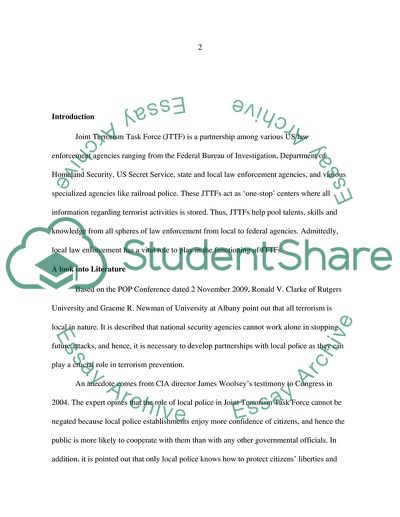Cite this document
(Local Law Enforcement Involvement in Joint Terrorism Task Forces Research Paper - 1, n.d.)
Local Law Enforcement Involvement in Joint Terrorism Task Forces Research Paper - 1. Retrieved from https://studentshare.org/law/1762527-local-law-enforcement-involvement-in-joint-terrorism-task-forces
Local Law Enforcement Involvement in Joint Terrorism Task Forces Research Paper - 1. Retrieved from https://studentshare.org/law/1762527-local-law-enforcement-involvement-in-joint-terrorism-task-forces
(Local Law Enforcement Involvement in Joint Terrorism Task Forces Research Paper - 1)
Local Law Enforcement Involvement in Joint Terrorism Task Forces Research Paper - 1. https://studentshare.org/law/1762527-local-law-enforcement-involvement-in-joint-terrorism-task-forces.
Local Law Enforcement Involvement in Joint Terrorism Task Forces Research Paper - 1. https://studentshare.org/law/1762527-local-law-enforcement-involvement-in-joint-terrorism-task-forces.
“Local Law Enforcement Involvement in Joint Terrorism Task Forces Research Paper - 1”, n.d. https://studentshare.org/law/1762527-local-law-enforcement-involvement-in-joint-terrorism-task-forces.


